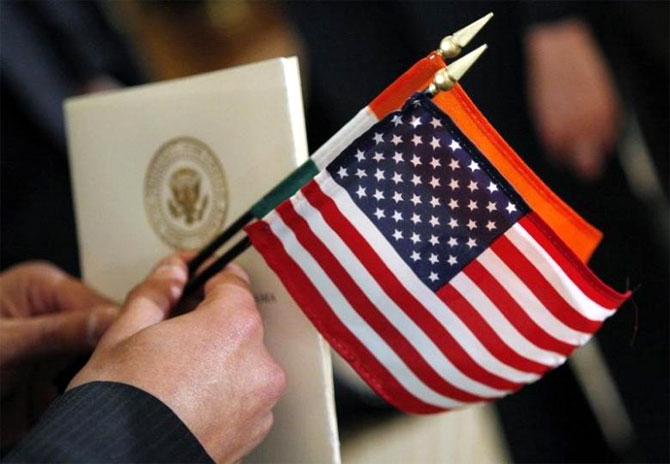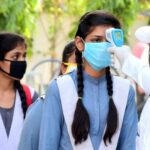India on Tuesday raised with the United States its decision to withdraw US visas from foreign students whose courses moved fully online even as the two countries held extensive talks covering a range of issues like ongoing threats to the rules-based international order as well as situation in the Indo-Pacific region.
It is understood that India’s border row with China figured in the talks between Foreign Secretary Harsh Vardhan Shringla and US Under Secretary of State for Political Affairs David Hale though there was no mention of it in the press statements issued by the two sides.
In a statement, the US State Department said Hale and Shringla agreed to consult closely on all challenges and endeavour to support each other’s objectives, adding the discussions included ongoing threats to the rules-based international order, maritime security, and the global response to the COVID-19 pandemic.
It said both officials pledged to remain in close contact on regional and international issues of mutual concern.
On the Trump administration’s decision on students’ visas, official sources said Shringla raised the issue following which the US side said they will keep the best interests of the Indian students in mind and would try and mitigate the impact of the decision.
The online talks were held under the framework of India-US Foreign Office Consultations.
In a move that is expected to adversely impact hundreds of thousands of Indian students, the US immigration authority announced that foreign students will have to leave the country or risk deportation if their universities switch to online-only classes in this fall semester due to the coronavirus pandemic.
In a statement, the Ministry of External Affairs said the two sides discussed ways to further enhance mutually beneficial trade and people-to-people ties, including through visa facilitation for students and professionals.
It said Shringla and Hale exchanged views on a number of regional and global issues of shared interest.
“They reaffirmed their commitment to work towards ensuring a free, open, inclusive, peaceful and prosperous Indo-Pacific. They agreed on the need to deepen cooperation in the United Nations, especially during India’s membership of the United Nations Security Council for the period 2021-2022,” the MEA said.
India and the US have been expanding cooperation in the Indo-Pacific region where China has been trying to expand its military and economic clout.
Referring to the COVID-19 pandemic, the MEA said the two sides agreed to further strengthen the bilateral health partnership, including on pharmaceuticals and vaccine development.
On its part, the US State Department said both sides agreed that the US-India health partnership, including cooperation on pharmaceutical and vaccine development, will continue to play a critical role in the world’s recovery from COVID-19.
The MEA said the two sides agreed to remain in touch, and move forward on the bilateral agenda through a range of mechanisms like the 2+2 ministerial dialogue that India will host later this year.




